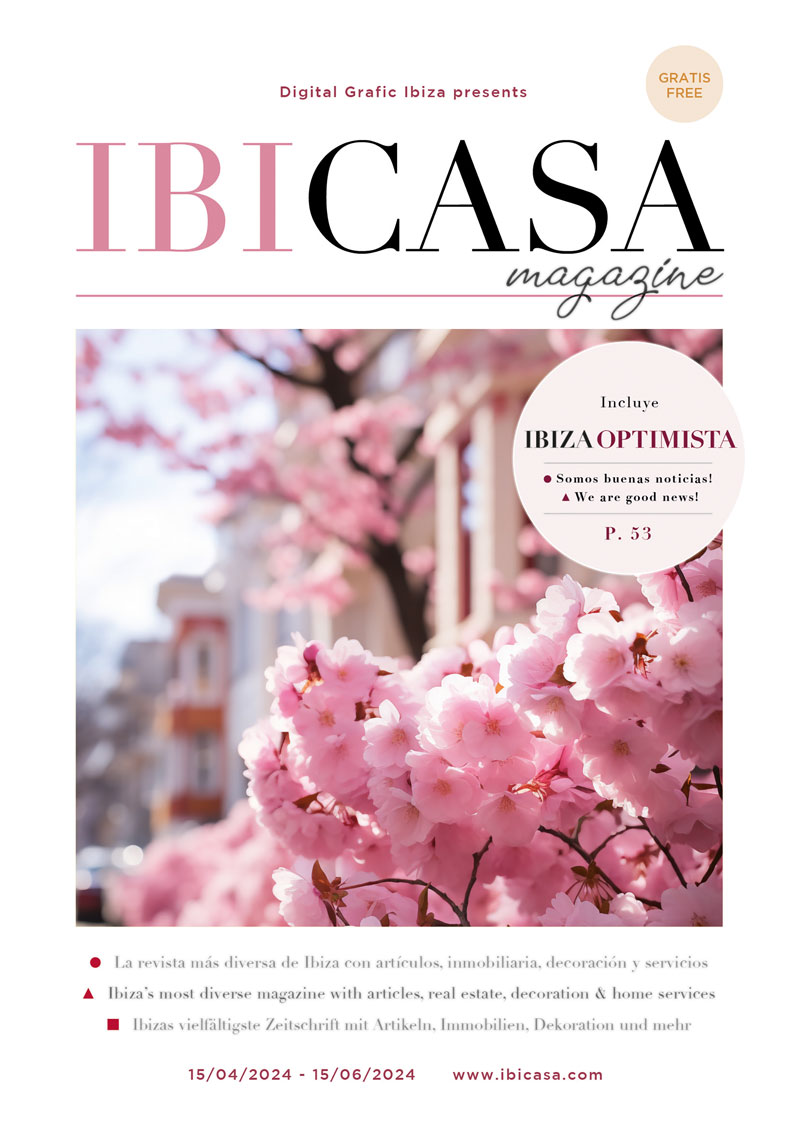Comprar, Vender y Alquilar en Ibiza
Reforma o repara su hogar
Encuentra todo lo que necesitas para hacer realidad tu hogar soñado en nuestro completo directorio de empresas confiables. Desde arquitectos y constructores expertos hasta fontaneros, electricistas y diseñadores de interiores, todos están dedicados a servirte.
Ver Guia másArtículos
Disfruta de nuestros interesantes artículos que abarcan una amplia gama de temas: eventos globales importantes, personas y lugares en Ibiza, consejos legales para bienes raíces, decoración del hogar y jardín, salud y bienestar, y las Buenas Noticias de todo el mundo en la sección Ibiza Optimista.
Ver ArtículosIBICASA Magazine
La Revista Inmobiliaria Número Uno en Ibiza
IBICASA le brinda acceso a cientos de propiedades inmobiliarias, además de una variedad de negocios de servicios para el hogar. Es la revista más diversa de Ibiza con artículos interesantes que cubren una variedad de temas: eventos importantes que están sucediendo en el mundo, gente de Ibiza, salud y bienestar, asesoramiento legal y más. Además, incluye los artículos especiales de buenas noticias de Ibiza Optimista.
IBICASA se publica bimestralmente, y está disponible de forma gratuita en nuestros stands ubicados por toda la isla, y también online en el siguiente botón.
Leer Revista
Enlaces patrocinados
© Copyright 2024
Ibicasa Home and Services.







